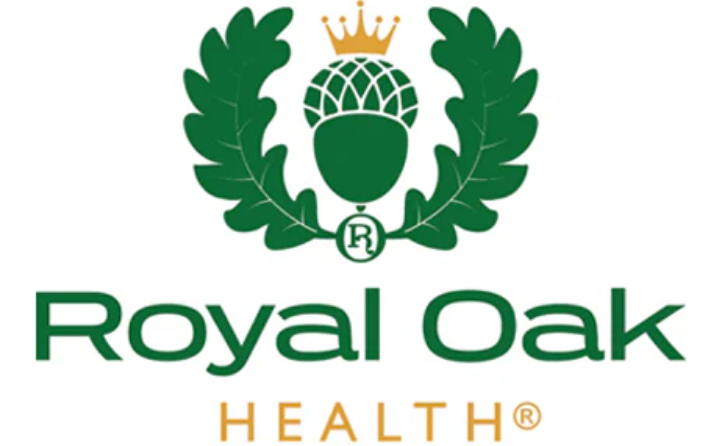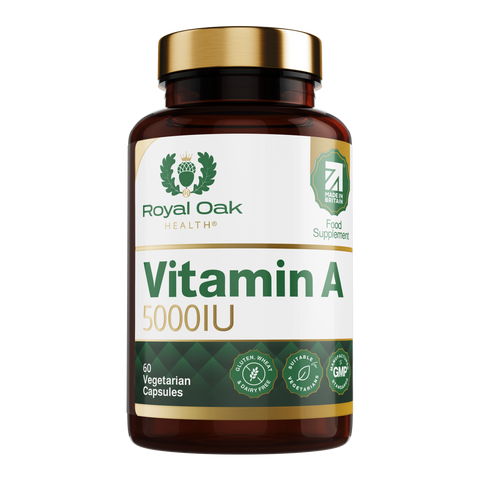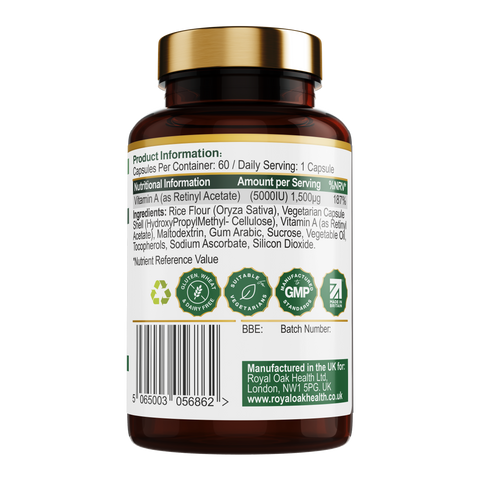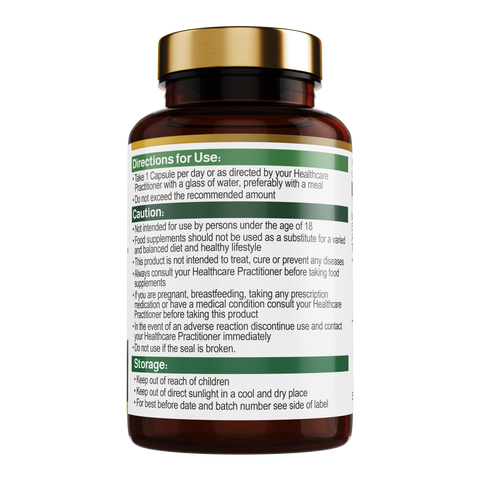Frequently Asked Questions
This dose gives strong support for vision (especially night vision), maintaining healthy skin and mucous membranes, and immune health. It’s higher than what many multivitamins provide and may help where diet alone isn’t giving sufficient preformed Vitamin A (e.g., from animal sources).
Preformed Vitamin A (retinol/retinyl esters) is directly usable by the body and doesn’t need conversion. Beta-carotene must be converted to active form, and conversion efficiency can vary (due to genetics, diet, health). This means preformed forms can be more reliable for someone with conversion issues.
Initial signs often include improved skin condition (less dryness), perhaps better moisture or texture, and maybe better tolerance of environmental stressors (e.g. pollution, dryness). Benefits for immune resilience or eye comfort tend to show more clearly with consistent use over 3-4 weeks.
Vitamin A is fat-soluble, which means the body stores it and too much over time can cause issues (liver, bone, skin). If you're also eating a lot of liver, or taking other supplements with preformed Vitamin A, keep track of total intake. Also, in pregnancy, high doses of preformed Vitamin A can have risks. (Most guidelines consider ~10,000 IU/day as a commonly cited upper safe limit for adults. )
Taking it with a meal that includes healthy fats improves absorption. Supporting nutrients like zinc and vitamin D also help with skin health and immune function. Plus, avoiding excessive alcohol, smoking, and ensuring hydration will allow your body to make better use of the vitamin.




